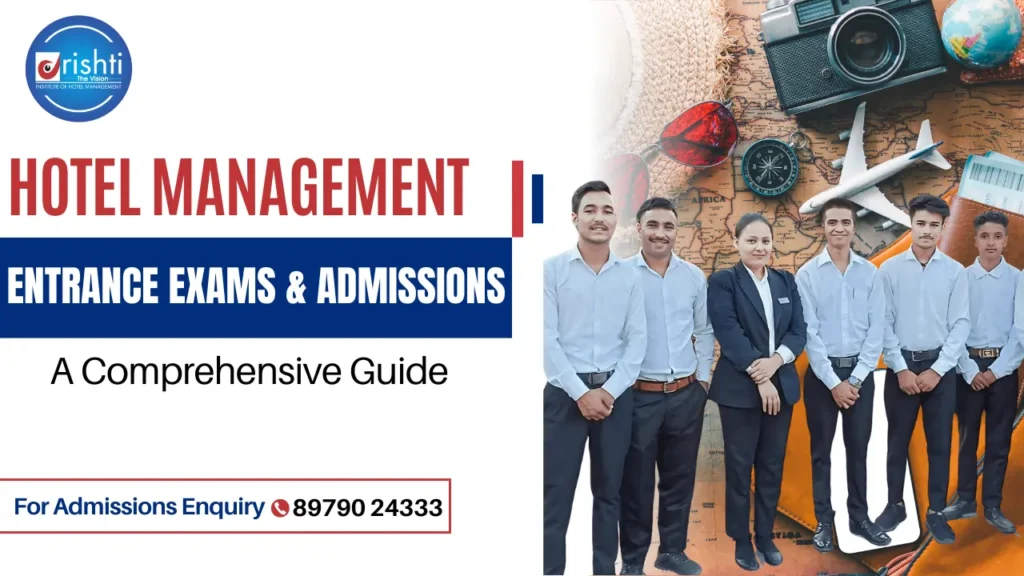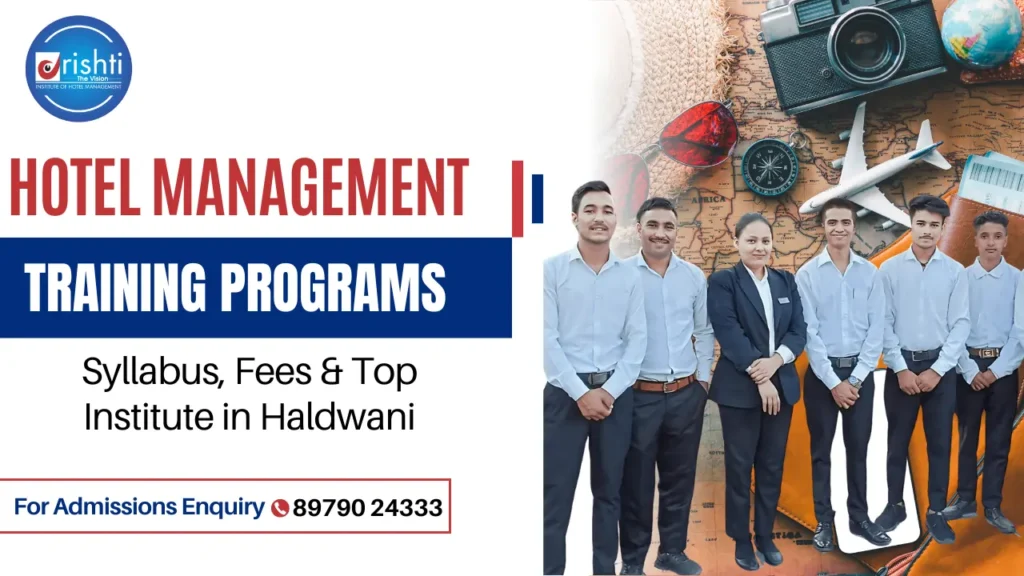Student Life at Drishti: Campus, Activities & Career Growth
Student life sirf classroom aur books tak limited nahi hoti. Yeh wo phase hota hai jahan aap apni personality, confidence aur career direction build karte ho. Aur jab baat ho Drishti – The Vision Institute of Hotel Management ki, to student life aur bhi zyada practical, energetic aur growth-oriented ban jaati hai. Yahan aap sirf hotel management nahi seekhte, balki industry ka real exposure, hands-on training, aur professional discipline bhi develop karte ho. Campus environment, daily activities, events, aur placement-focused training—sab kuch aise design kiya gaya hai jo aapko job-ready banaye, sirf degree holder nahi. Is blog me aap detail me jaanoge ki Student Life at Drishti kaisi hoti hai, campus ka culture kaisa hai, kaun-kaun se activities hoti hain, aur kaise yeh institute aapke career growth ko fast-track karta hai. Life at Drishti Institute – Sirf Padhai Nahi, Real Exposure Drishti – The Vision Institute of Hotel Management me student life sirf classroom tak simit nahi rehti. Yahan har din kuch naya seekhne ko milta hai. Books ke saath-saath real industry ka exposure diya jata hai, jisse students sirf degree holder nahi, balki confident professionals bante hain. Yeh sirf lectures ka college nahi hai. Yahan students kitchen me kaam karte hain, front office handle karte hain, guests se deal karna seekhte hain, aur real-world situations ka experience lete hain. Isi exposure ki wajah se students job interview me alag nazar aate hain. Drishti ka environment competitive bhi hai aur supportive bhi. Seniors guide karte hain. Faculty har student par personal focus deti hai. Aur sabse important baat – yahan students apni personality me real growth mehsoos karte hain. Drishti Campus Infrastructure & Learning Environment Drishti ka campus specially industry-oriented training ko dhyan me rakh kar design kiya gaya hai. Yahan ka environment bilkul professional feel deta hai, jahan students naturally ek disciplined routine me adapt ho jate hain. Campus me modern classrooms, fully equipped training kitchens, front office labs aur housekeeping practice areas available hain. Har facility ka ek hi goal hai – students ko real hotel working environment ka experience dena. Yahan padhai shant aur focused atmosphere me hoti hai. Clean campus, proper seating, digital learning support aur practical zones students ko distraction se door rakhte hain. Iska direct impact unki learning aur confidence par padta hai. Drishti ka learning environment sirf syllabus complete karne ke liye nahi hai. Yeh students ko professionally grow karne ke liye tayaar karta hai. Also read: How to Get Hotel Management Jobs Abroad After Training at Drishti Institute Haldwani Daily Student Routine at Drishti Drishti mein student life sirf classes tak simit nahi hoti. Har din aisa plan hota hai jo students ko discipline, skills aur confidence teenon sikhata hai. Subah din ki shuruaat theory sessions se hoti hai. Yahan students hospitality concepts, hotel operations aur industry standards ko clearly samajhte hain. Classes interactive hoti hain, jahan sirf notes nahi balki real-life examples se samjhaya jata hai. Mid-day practical training ka time hota hai. Students kitchen, front office aur housekeeping labs mein kaam karte hain. Yahin unhe real hotel working ka feel milta hai. Galti karna allowed hota hai, taaki seekh strong ho. Lunch ke baad skill-building sessions hote hain. Isme communication practice, grooming, body language aur teamwork par kaam hota hai. Students ko interview-ready banane par focus diya jata hai. Shaam ko doubt sessions aur mentoring hoti hai. Teachers individual students ki progress dekhte hain aur unhe guide karte hain. Isse students ko clarity milti hai aur confidence bhi badhta hai. Is tarah Drishti ka daily routine students ko sirf padhata nahi, balki unhe professionally grow karta hai. Har din kuch naya seekhne ka mauka milta hai. Practical Training & Industry Exposure Classroom learning tab tak incomplete hoti hai jab tak real-world practice na mile. Drishti students ko shuru se hi hands-on training di jaati hai jahan woh actual hotel environment jaise setup mein kaam karte hain. Training kitchens, front office labs, aur housekeeping units par students daily tasks perform karte hain – sirf dekhte nahi, khud karte hain. Industry visits, live demo sessions, aur internships ke through students ko real hotel operations ka exposure milta hai. Is practical approach ka result yeh hota hai ki jab student field mein enter karta hai, to use basic se start nahi karna padta. Woh already work-ready hota hai. Also read: Unlocking International Opportunities with a Hotel Management Diploma Student Activities, Events & Competitions Drishti mein student life sirf books aur uniforms tak limited nahi hai. Yahan learning ke saath saath events aur activities ka strong culture bhi hai. Students food festivals, cultural programs, theme-based service days, aur inter-college competitions mein actively participate karte hain. In events ka purpose sirf entertainment nahi hota, balki confidence build karna, stage fear remove karna, aur teamwork sikhana hota hai. Jab student crowd ke saamne perform karta hai, organize karta hai, aur responsibility handle karta hai, tab actual professional growth shuru hoti hai. Personality Development & Soft Skills Hotel industry sirf technical knowledge par nahi chalti. Yahan aapka behavior, communication aur confidence sab kuch decide karta hai. Isliye Drishti Institute students ki personality ko classroom se bhi aage le jaata hai. Yahan students ko regular training milti hai in areas me: Students ko public speaking ke real chances milte hain. Stage fear dheere-dheere confidence me convert ho jata hai. Interview facing ke liye: Yeh sab training milkar ek student ko job-ready se confidence-ready professional bana deti hai. Industry me sirf hard skills nahi, soft skills hi promotion dilwati hain. Aur Drishti isi par sabse zyada focus karta hai. Career Growth & Placement Support Student life ka sabse important goal hota hai – strong career start. Drishti is cheez ko sirf promise nahi karta, balki properly plan karta hai. Yahan students ko pehle din se industry mindset ke saath train kiya jata hai. Training ke saath-saath students ko bataya jata hai ki hotel industry me actually hiring kaise hoti hai, interviews kaise crack karne hote hain, aur career growth ka real roadmap kya hota hai. Isse students sirf







